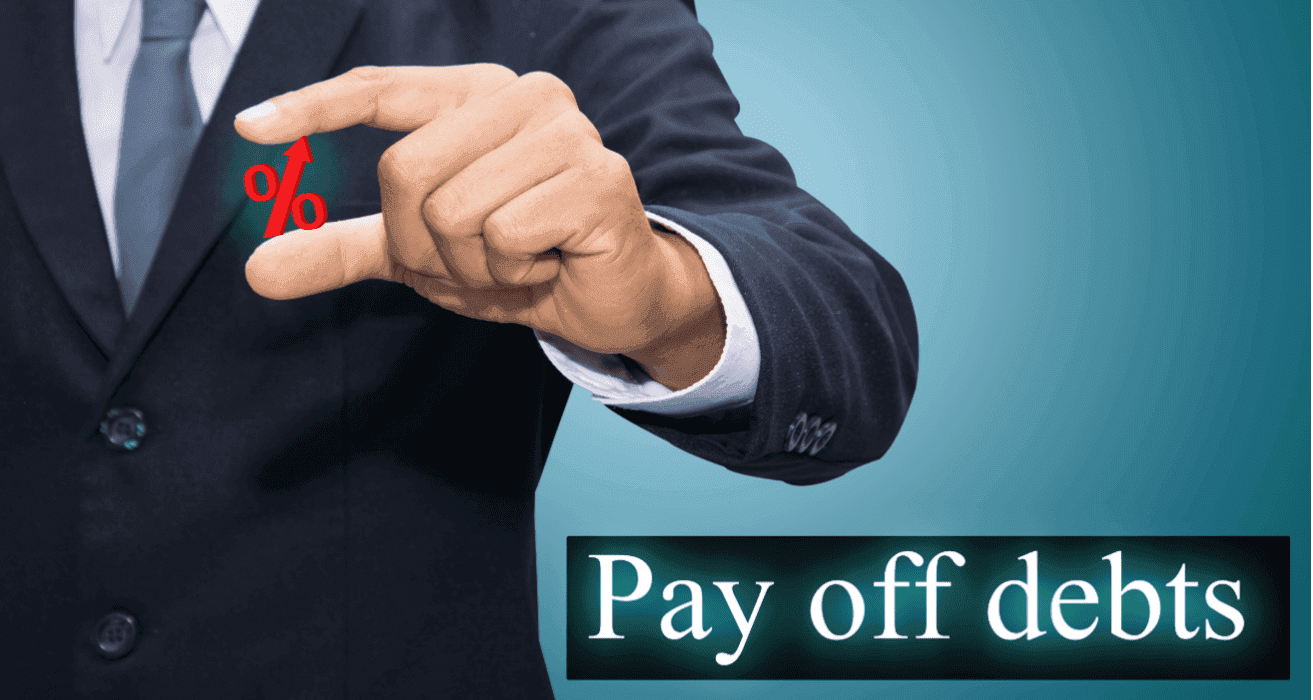July 30, 2025
10 minutes

Crushed by high-interest debt? You're not alone, and there's a smart way out.
Many homeowners are turning to mortgage refinancing to eliminate burdensome credit card or personal loan debt. With mortgage interest rates typically lower than consumer credit rates, refinancing can be a powerful tool to regain financial freedom, if done right.
In this guide, you'll discover how mortgage refinancing works for debt consolidation, who it benefits, what the risks are, and how to take the next step wisely, without falling for costly traps.
Refinancing your mortgage may help you roll high-interest debts into one manageable payment at a lower rate. But you need to understand the costs, risks, and options before diving in.
Key Takeaways:
- Refinancing can help consolidate high-interest credit card or personal debt into a lower-rate mortgage loan.
- Key benefits include lower monthly payments, reduced total interest, and simplified finances.
- It's not for everyone. Understand the tradeoffs, costs, and loan eligibility before acting.
- Professional guidance is essential to avoid costly mistakes or misleading offers.
- Consider commission-free platforms and licensed loan officers to compare your refinance options.
What Is Mortgage Refinancing for Debt Consolidation?
Refinancing means replacing your existing home loan with a new one, often at a better interest rate, term, or loan structure. When used for debt consolidation, it involves borrowing extra money through your mortgage to pay off other debts.
Example: Say you owe $200,000 on your mortgage and $25,000 in credit card debt. You refinance into a $225,000 mortgage, pay off the credit cards, and now have just one monthly mortgage payment.
Get Pre-Qualified and Save Up to 1.5% at Closing with reAlpha
Save up to 1.5% at closing when you combine real estate and mortgage services with reAlpha.

Common Debts Paid Off with Refinance:
- Credit cards (APR often 18%+)
- Personal loans
- Medical bills
- Auto loans (sometimes)
Pro Tip: Mortgage rates are often 3–6% lower than unsecured debt. That’s why this strategy can work, but only if you keep future spending in check.
Benefits of Using Refinance to Consolidate Debt
- Lower Interest Rate Mortgage loans generally have lower interest rates than unsecured debt.
- One Monthly Payment Streamline your finances with a single, predictable bill.
- Lower Monthly Obligations Spread payments over 15–30 years to reduce the monthly burden.
- FICO Score Boost Paying off maxed-out credit cards can help your credit utilization ratio.
- Tax Deductibility Interest on mortgage loans may be tax-deductible. Check with a tax advisor.
Risks and Tradeoffs to Watch For
Debt consolidation via mortgage refinance isn’t free money, it comes with important risks:
- Closing Costs: These can range from 2–6% of the loan amount.
- Restarting the Clock: You might be extending your repayment timeline.
- Secured vs. Unsecured Debt: Your home is now on the line for the new, larger loan.
- Overborrowing Temptation: Some use freed-up credit again, leading to more debt.
Heads up: If you don’t change your spending habits, refinancing alone won’t solve the problem.
Buying a Home? Get up to 1.5% Cash Back at Closing
Get pre-approval first, then start exploring homes knowing you can receive up to 1.5% of the home price back at closing.

Is Refinancing Right for You?
Consider refinancing if:
- You have 20 %+ equity in your home.
- Your credit score has improved since your original mortgage.
- You’re juggling high-interest debt with little progress.
- Your income is stable, and you're financially disciplined.
It may not be right if:
- You're planning to move soon.
- Your new rate or term isn’t favorable.
- Closing costs outweigh the benefits.
Don’t worry, we’ve got you. Use reAlpha to explore smarter refinance options and get connected with licensed professionals from reAlpha Mortgage — your one-stop solution for home financing and debt consolidation.
Step-by-Step: How to Refinance for Debt Payoff?
- Check Home Equity You’ll generally need 20% equity to avoid PMI.
- Gather Your Debt Info Know your balances, rates, and payments.
- Compare Offers Use a marketplace like realpha and get matched with local loan officers.
- Estimate Your Savings Look at the monthly payment, the lifetime interest, and the closing costs.
- Apply for the Refinance Submit required docs (W-2s, tax returns, credit report, etc.)
- Close the Loan and Pay Off Debt Use the refinance proceeds to eliminate your other balances.
- Stick to a Budget Avoid reaccumulating debt by building better spending habits.
Conclusion: Smart Borrowing Starts with the Right Platform
Buying a home is a big decision - and having the right information puts you ahead. But the real advantage comes from pairing smart research with a smarter way to buy.
When you use a reAlpha real estate company, you can be eligible to receive up to 1% of the home purchase price back as a credit at closing. Add reAlpha Mortgage, and that rebate can increase to up to 1.5% back, helping offset closing costs and keep more money in your pocket when it matters most.
The rebate is simple, transparent, and applied directly at closing - no complicated hoops, no delayed payouts. Just real savings tied to using a fully integrated homebuying experience.
See how much you could save:
- Check your eligibility
- Explore homes that fit your budget today.
- Your next move could come with thousands back at closing.
Estimate your savings → Rebate Calculator
Explore your refinance savings at reAlpha Mortgage
FAQs
What is debt consolidation refinancing?
It’s the process of refinancing your mortgage with a higher loan amount to pay off high-interest debt like credit cards and personal loans.
Do I need good credit to refinance and consolidate debt?
Yes. Better credit means better rates and terms. Most lenders prefer a score of 620+, but higher scores unlock lower rates.
Will I lose my home if I can’t pay?
Potentially, yes. By securing your credit card debt with your house, you increase the risk in case of default.
Is refinancing the same as a home equity loan?
No. A home equity loan is a second mortgage. Refinancing replaces your current mortgage with a new one.
What’s the catch with refinancing?
There are costs involved, like appraisal fees, title insurance, and loan origination charges. It’s not a “free” process.
Disclosure: This blog is for informational purposes only and does not constitute financial or legal advice. All mortgage products are subject to underwriting approval. Rates and terms are subject to change based on market conditions and borrower qualifications. reAlpha Mortgage is a licensed mortgage brokerage (NMLS #1743790). reAlpha is a homebuying platform that connects you to vetted real estate professionals, mortgage experts, and exclusive commission rebate offers. Always consult a licensed professional before making financial decisions.
Get the latest market trends, homebuying tips, and insider updates—straight to your inbox. No fluff, just the good stuff.
Article by
Rocky Billore is a mortgage industry leader and Chief Sales Officer with over two decades of experience across residential and commercial lending. Since entering the industry in 2004, he has been directly involved in funding more than $1.4 billion in loans. A recognized expert in VA and government lending, Rocky combines deep program knowledge with a data driven, relationship-first leadership style. His work focuses on building scalable sales organizations, developing high performing teams, and aligning technology with real world lending outcomes to improve the homeownership experience.